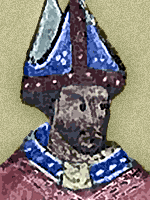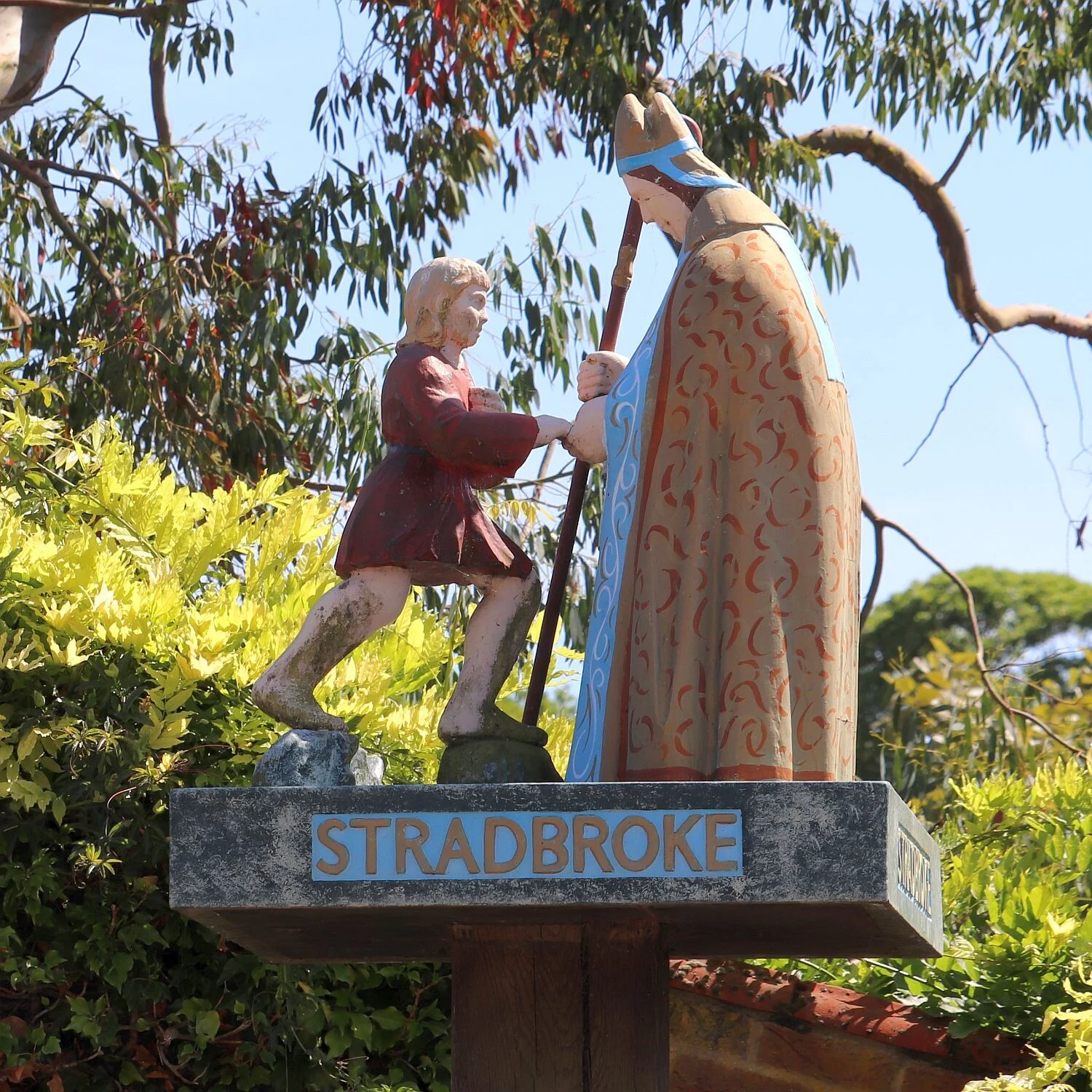|
Robert Grosseteste
Robert Grosseteste ( ; ; 8 or 9 October 1253), also known as Robert Greathead or Robert of Lincoln, was an Kingdom of England, English statesman, scholasticism, scholastic philosopher, theologian, scientist and Bishop of Lincoln. He was born of humble parents in Suffolk (according to the early 14th-century chronicler Nicholas Trevet), but the association with the village of Stradbroke is a post-medieval tradition. Upon his death, he was Folk saint, revered as a saint in England, but attempts to procure a formal canonisation failed. Alistair Cameron Crombie, A. C. Crombie called him "the real founder of the tradition of scientific thought in medieval Oxford, and in some ways, of the modern English intellectual tradition". As a theologian, however, he contributed to increasing hostility to Jews and Judaism, and spread the accusation that Jews had purposefully suppressed prophetic knowledge of the coming of Christ, through his translation of the ''Testaments of the Twelve Patria ... [...More Info...] [...Related Items...] OR: [Wikipedia] [Google] [Baidu] |
Bishop Of Lincoln
The Bishop of Lincoln is the Ordinary (officer), ordinary (diocesan bishop) of the Church of England Diocese of Lincoln in the Province of Canterbury. The present diocese covers the county of Lincolnshire and the unitary authority areas of North Lincolnshire and North East Lincolnshire. The bishop's seat (''cathedra'') is located in the Lincoln Cathedral, Cathedral Church of the Blessed Virgin Mary in the city of Lincoln, England, Lincoln. The cathedral was originally a minster (church), minster church founded around 653 and refounded as a cathedral in 1072. Until the 1530s the bishops were in full communion with the Roman Catholic Church. The medieval Lincoln Medieval Bishop's Palace, Bishop's Palace lies immediately to the south of the cathedral in Palace Yard; managed by English Heritage, it is open to visitors. A later residence (first used by Edward King (Bishop of Lincoln), Bishop Edward King in 1885) on the same site was converted from office accommodation to reopen in 20 ... [...More Info...] [...Related Items...] OR: [Wikipedia] [Google] [Baidu] |
Scientific Demonstration
A scientific demonstration is a procedure carried out for the purposes of demonstrating scientific principles, rather than for hypothesis testing or knowledge gathering (although they may originally have been carried out for these purposes). Most scientific demonstrations are simple laboratory demonstrations intended to demonstrate physical principles, often in a surprising or entertaining way. They are carried out in schools and universities, and sometimes in public demonstrations in popular science lectures and TV programs aimed at the public. Many scientific demonstrations are chosen for their combination of educational merit and entertainment value, which is often provided by dramatic phenomena such as explosions. Public scientific demonstrations were a common occurrence in the Age of Enlightenment, and have long been a feature of the British Royal Institution Christmas Lectures, which date back to 1825. In the television era, scientific demonstrations have featured in scie ... [...More Info...] [...Related Items...] OR: [Wikipedia] [Google] [Baidu] |
Bishop
A bishop is an ordained member of the clergy who is entrusted with a position of Episcopal polity, authority and oversight in a religious institution. In Christianity, bishops are normally responsible for the governance and administration of dioceses. The role or office of the bishop is called episcopacy or the episcopate. Organisationally, several Christian denominations utilise ecclesiastical structures that call for the position of bishops, while other denominations have dispensed with this office, seeing it as a symbol of power. Bishops have also exercised political authority within their dioceses. Traditionally, bishops claim apostolic succession, a direct historical lineage dating back to the original Twelve Apostles or Saint Paul. The bishops are by doctrine understood as those who possess the full Priest#Christianity, priesthood given by Jesus in Christianity, Jesus Christ, and therefore may ordain other clergy, including other bishops. A person ordained as a deacon, pri ... [...More Info...] [...Related Items...] OR: [Wikipedia] [Google] [Baidu] |
Liberal Arts Education
Liberal arts education () is a traditional academic course in Western higher education. ''Liberal arts'' takes the term '' art'' in the sense of a learned skill rather than specifically the fine arts. ''Liberal arts education'' can refer to studies in a liberal arts degree course or to a university education more generally. Such a course of study contrasts with those that are principally vocational, professional, or technical, as well as religiously based courses. The term ''liberal arts'' for an educational curriculum dates back to classical antiquity in the West, but has changed its meaning considerably, mostly expanding it. The seven subjects in the ancient and medieval meaning came to be divided into the trivium of rhetoric, grammar, and logic, and the quadrivium of astronomy, arithmetic, geometry, and music. Since the late 1990s, major universities have gradually dropped the term ''liberal arts'' from their curriculum or created schools for liberal art disciplines to c ... [...More Info...] [...Related Items...] OR: [Wikipedia] [Google] [Baidu] |
Testaments Of The Twelve Patriarchs
The Testaments of the Twelve Patriarchs is a constituent of the apocryphal scriptures connected with the Bible. It is believed to be a pseudepigraphical work of the dying commands of the twelve sons of Jacob. It is part of the Oskan Armenian Orthodox Bible printed in 1666. Fragments of similar writings were found at Qumran, but opinions are divided as to whether these are the same texts. It is generally considered apocalyptic literature. The Testaments were written in Hebrew or Greek, and reached their final form in the 2nd century CE. In the 13th century they were introduced into the Western world through the agency of Robert Grosseteste, Bishop of Lincoln, whose Latin translation of the work immediately became popular. He believed that it was a genuine work of the twelve sons of Jacob, and that the Christian interpolations were a genuine product of Jewish prophecy; he accused Jews of concealing the Testaments "on account of the prophecies of the Saviour contained in them." ... [...More Info...] [...Related Items...] OR: [Wikipedia] [Google] [Baidu] |
Oxford
Oxford () is a City status in the United Kingdom, cathedral city and non-metropolitan district in Oxfordshire, England, of which it is the county town. The city is home to the University of Oxford, the List of oldest universities in continuous operation, oldest university in the English-speaking world; it has buildings in every style of Architecture of England, English architecture since late History of Anglo-Saxon England, Anglo-Saxon. Oxford's industries include motor manufacturing, education, publishing, science, and information technologies. Founded in the 8th century, it was granted city status in 1542. The city is located at the confluence of the rivers Thames (locally known as the Isis) and River Cherwell, Cherwell. It had a population of in . It is north-west of London, south-east of Birmingham and north-east of Bristol. History The history of Oxford in England dates back to its original settlement in the History of Anglo-Saxon England, Saxon period. The name � ... [...More Info...] [...Related Items...] OR: [Wikipedia] [Google] [Baidu] |
Alistair Cameron Crombie
Alistair Cameron Crombie (4 November 1915 – 9 February 1996) was an Australian historian of science who began his career as a zoologist. He was noted for his contributions to research on competition between species before turning to history. Early life and education Born in Brisbane, Australia, Crombie was educated at the Church of England Grammar School and Geelong Grammar School. He then undertook tertiary study in Science at the University of Melbourne, where he was a resident from 1935 at Trinity College. During his studies in Melbourne, he won the First Brunning Prize in Botany Part I (1935) and the Exhibition in Zoology Part III (1937). Crombie undertook postgraduate study at Jesus College, the University of Cambridge, receiving his doctorate in 1942 in the area of population dynamics. He married Nancy Hey in 1943 and had five children. He undertook research at the Cambridge Zoological Laboratory for the British Ministry of Agriculture and Fisheries from 1941 until ... [...More Info...] [...Related Items...] OR: [Wikipedia] [Google] [Baidu] |
Canonisation
Canonization is the declaration of a deceased person as an officially recognized saint, specifically, the official act of a Christian communion declaring a person worthy of public veneration and entering their name in the canon catalogue of saints, or authorized list of that communion's recognized saints. Catholic Church Canonization is a papal declaration that the Catholic faithful may venerate a particular deceased member of the church. Popes began making such decrees in the tenth century. Up to that point, the local bishops governed the veneration of holy men and women within their own dioceses; and there may have been, for any particular saint, no formal decree at all. In subsequent centuries, the procedures became increasingly regularized and the Popes began restricting to themselves the right to declare someone a Catholic saint. In contemporary usage, the term is understood to refer to the act by which any Christian church declares that a person who has died is a saint, ... [...More Info...] [...Related Items...] OR: [Wikipedia] [Google] [Baidu] |
Folk Saint
Folk saints are dead people or other spiritually powerful entities (such as indigenous spirits) venerated as saints, but not officially canonization, canonized. Since they are saints of the "folk", or the ''populus'', they are also called popular saints. Like officially recognized saints, folk saints are considered intercession, intercessors with God, but many are also understood to act directly in the lives of their devotees. Frequently, their actions in life, as well as in death, distinguish folk saints from their canonized counterparts: official doctrine would consider many of them sinners and false idols. Their ranks are filled by folk healers, indigenous spirits, and folk heroes. Folk saints occur throughout the Catholicism, Catholic world, and they are especially popular in Latin America, where most have small followings; a few are celebrated at the national or even international level. Origins In the pre-Christian Abrahamic religions, Abrahamic tradition, the prophets and ho ... [...More Info...] [...Related Items...] OR: [Wikipedia] [Google] [Baidu] |
Stradbroke
Stradbroke ( ) is an English village in the Mid Suffolk district of the county of Suffolk. The census of 2011 gave the parish a population of 1,408, with an estimate of 1,513 in 2018. Heritage The village was listed in the Domesday Book of 1096 as being in the Bishop's Hundred,Open Domesday: Stradbroke accessed February 2020. later renamed Hoxne Hundred. The village name was sometimes spelt Stradbrook in the Middle Ages and in local documents as late as the early 19th century. A post-medieval source states that the prominent medieval philosopher , also Bishop of Lincoln, was bo ... [...More Info...] [...Related Items...] OR: [Wikipedia] [Google] [Baidu] |
Scholasticism
Scholasticism was a medieval European philosophical movement or methodology that was the predominant education in Europe from about 1100 to 1700. It is known for employing logically precise analyses and reconciling classical philosophy and Catholic Christianity. The Scholastics, also known as Schoolmen, utilized dialectical reasoning predicated upon Aristotelianism and the categories (Aristotle), Ten Categories. Scholasticism emerged within the monastic schools that translated medieval Judeo-Islamic philosophies (800–1400), Judeo-Islamic philosophies, and "rediscovered" the Corpus Aristotelicum, collected works of Aristotle. Endeavoring to harmonize Aristotle's metaphysics (Aristotle), metaphysics and Latin Catholic theology, these monastic schools became the basis of the earliest European medieval university, medieval universities, and thus became the bedrock for the development of History of science, modern science and Western philosophy, philosophy in the Western world. T ... [...More Info...] [...Related Items...] OR: [Wikipedia] [Google] [Baidu] |








